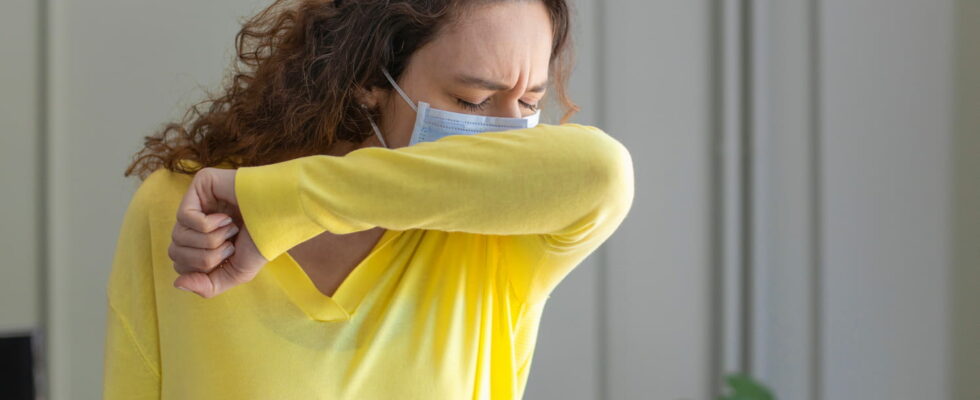Cases of whooping cough are soaring in France, including in adults, and it is very contagious.
Whooping cough cases are soaring in France: “The various whooping cough surveillance indicators confirm an epidemic situation established in the territory with very significant circulation of the bacteria during the first half of 2024 and which has intensified in recent weeks” informed Public Health France June 28. Whooping cough is not only a childhood disease, it also affects adults and it is a disease that takes a long time to cure.
After contamination by the bacterium bordetella pertussis, the incubation period of whooping cough is on average 2 weeks. It can vary between 7 days and three weeks. This first phase is marked by the absence of symptoms (the patient is asymptomatic). After this incubation phase, rhinorrhea may occur. “In the early stages, whooping cough is easily confused with a cold, due to the runny nose” explains Dr Sophie Bauer, doctor and president of the SML (union of liberal doctors).
The second phase is the paroxysmal phase, which is characterized by a persistent cough, lasting on average 7 days. “The main symptom of whooping cough is coughing.confirms Doctor Sophie Bauer. The cough is particular: it is dry, jerky and comes in fits.” Coughing attacks in cases of whooping cough are sudden and cause spasms (spasmodic cough). “This is a major cough that can lead to vomiting. The cough in whooping cough is very disabling, due to the attacks. Prolonged attacks are associated with complicated resumption of breathing (inspiration). The cough can prevent the patient from breathing”, continues the doctor. During this difficult inspiration, the emission of a high-pitched sound is possible, sometimes called “the cock’s crow”.
“In toddlers, coughing fits are impressive and sometimes cause attacks of cyanosis, a bluish discoloration of the skin due to a lack of oxygen, bradycardia (heart rate lower than normal) as well as apnea” lists Dr. Bauer. Whooping cough also causes fatigue that lasts a long time. However, fever is not one of the symptoms. In adults, coughing is exacerbated at night because the lying position does not promote proper drainage of the bronchi. “Whooping cough mainly affects adults after the age of 60, because their vaccine immunity has waned or even disappeared. It is very important to vaccinate people over 60, especially if they have grandchildren, for protection optimal transmission of the bacteria. Whooping cough is one of the causes of infant mortality worldwide. The infant must be protected from this potentially serious disease. In the event of secondary infection, pneumonia can occur and even serious neurological signs. The bacteria spreads to the lungs, but can also cause multi-organ infections. Whooping cough is a disease that can be fatal in newborns. Immunocompromised adults can also suffer from it. severe whooping cough.”
Dr Sophie Bauer recalls the vital importance of being vaccinated during pregnancy and not only during whooping cough epidemics. “Vaccination against whooping cough in pregnant women can take place between the 20th and 36th week of amenorrhea. At birth and until 3 months, the baby benefits from his mother’s immunity, through the transmission of antibodies Otherwise, in toddlers aged between 0 and 3 months, hospitalization is systematic in the event of whooping cough, as a precaution. Treatment is essentially based on macrolides, antibiotics effective against the bordetella pertussis bacteria. to be recommended in pregnant women, a booster vaccination is recommended in adults between 25 and 40 years old. Antibiotic prophylaxis is often prescribed for the patient’s contacts in the event of non-pertussis vaccination in the previous five years. concludes Dr Sophie Bauer.
Thanks to Doctor Sophie Bauer, thoracic and vascular surgeon and president of the SML (union of liberal doctors).
